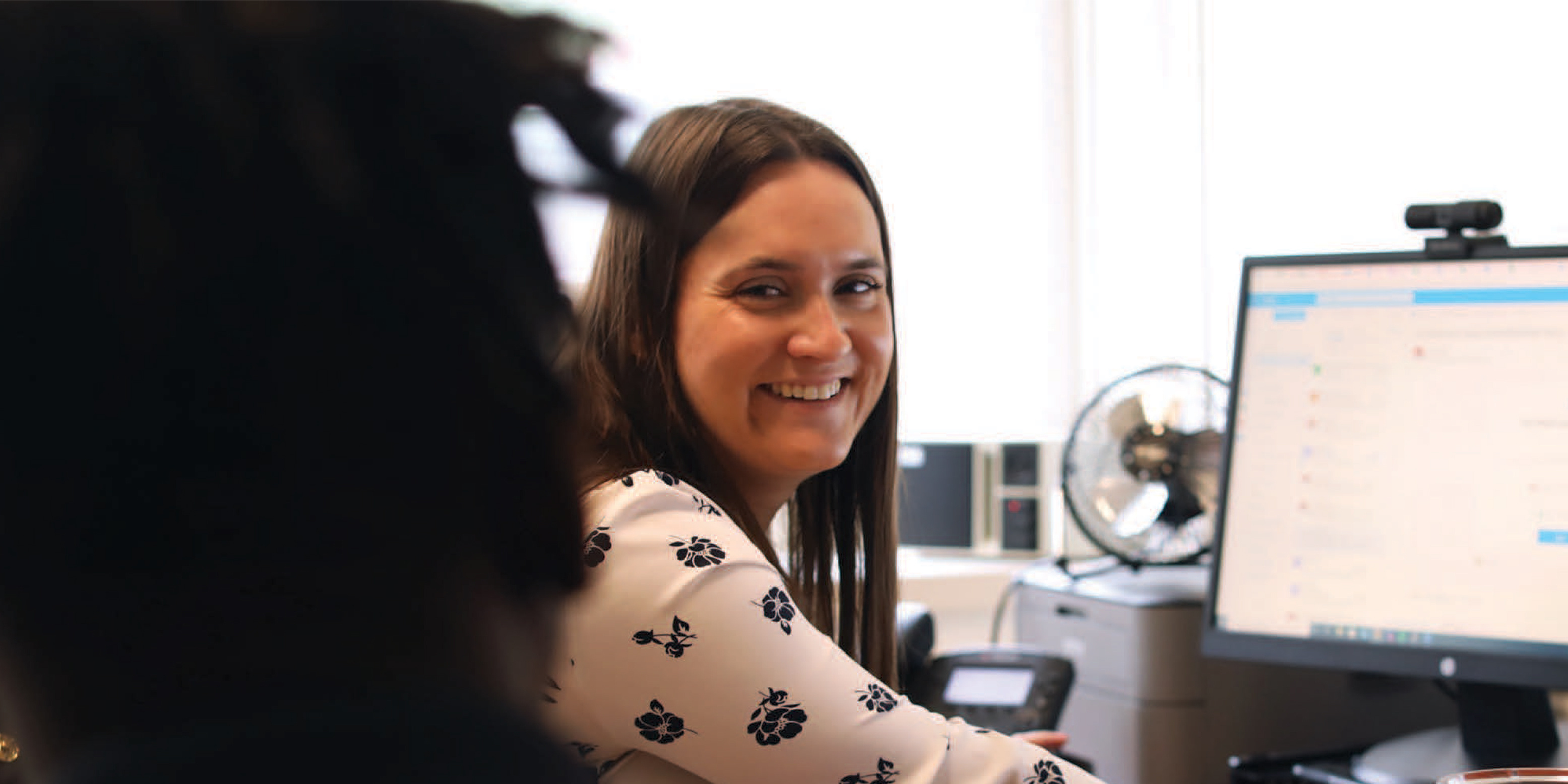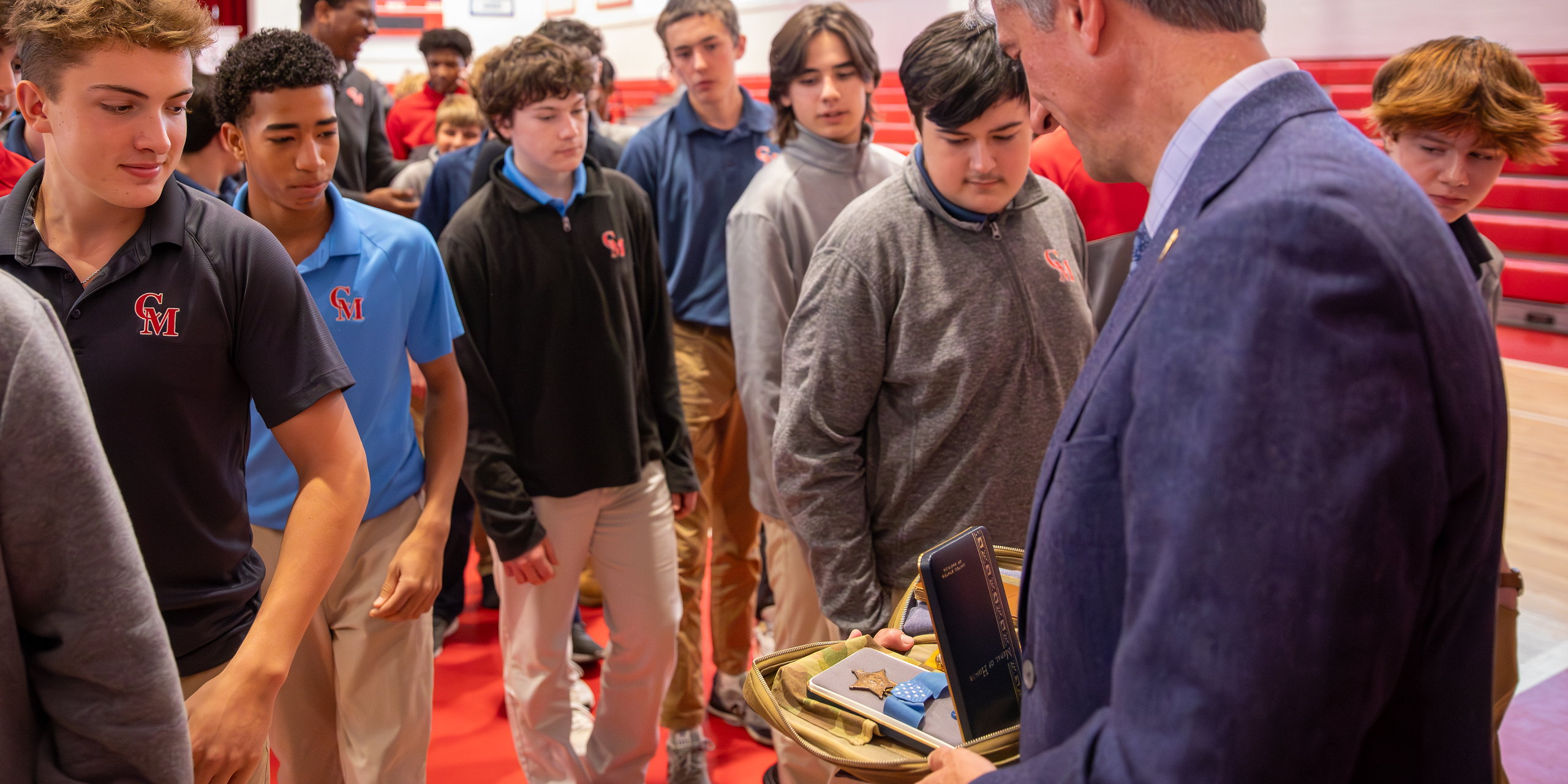Built for Boys
It’s Thursday, and every student in the building knows what that means. For 40 minutes, traditional classes have come to a halt. Instead, some students will head to the Yawkey Center for Integrated and Applied Learning for a round of chess or meet in English teacher PJ Rufo’s room for a rousing game of team trivia.
On a different Thursday, the performing artists of CM are showcasing their talents to the amazement of the entire school. And on another week, students compete in a game of whiffle ball or a fast-paced handball match to see which homerooms can bring home the vaunted Class Cup.
The idea of a dedicated community period was born out of what was lost during the COVID-impacted 2020-21 school year. With the school in a hybrid schedule and with only essential activities taking place, much of the school was forced into the “2:30 Club,” the nickname given by students to those who go home at the end of the last class rather than participate in athletics or co-curriculars.
Over the course of that year, socializing took place during outdoor mask breaks, which also held the solution to rebuilding the community bonds that keep the school together. “When we were in the hybrid model, we explored community days where we were intentional about relationship building. What we learned through COVID is when we did things like school-wide outdoor mask breaks, we were successful with breaking up the day to be together,” says Vice Principal, Kevin Durazo. “What we found was the importance of having space within the school day for community building.”
According to Durazo, the breaks helped increase in-class engagement during the day. Combined with student feedback, indicating more time to interact in a non-classroom setting, efforts began to find a way to create an environment for informal interactions.
“Activity period allows students and faculty to bond over interests outside of class. Class Cup leverages the excitement we get on Olympic Day at a grade level, and all-school assemblies have always been a part of our programming,” says Principal Andrew O’Brien.
It is during activity periods that students and teachers learn of their shared passions. Megan Leahy, the vice principal of teaching and learning and a yoga enthusiast, always has a gym full of students ready to learn the bow pose. Star Wars fan and English teacher Doug Atkins once hosted a session on what we can learn from the politics of the popular sci-fi series.
There are also moments for students to learn from their teachers’ interests. Legendary English teacher Vin Catano took a class on a virtual tour of one of his favorite vacation spots: the Outer Banks of North Carolina, while social studies teacher Brian Powers taught a class full of young rap fans about the genre’s golden age of the mid-1980s to the mid-1990s.
“I have been surprised and impressed by the teachers’ willingness to do this. They have to prepare for this outside of their regular grading and planning, and they have been very engaging and creative,” says Leahy. “It’s almost like having a cup of coffee with a friend. You can lay off the lesson planning and have a conversation with a student you may not know well.”
Students also have a chance to organize their own activity period sessions. Avid gamer Michael Clinton ’24, under the guidance of theology department co-chair Dr. Mickey Corso, organizes Super Smash Bros. tournaments by connecting a Nintendo Switch to the massive screen in the performance studio. During these tournaments, students can be heard bantering, cheering, and making new connections as their fighters throw each other across the screen in battle.
“A lot of us play video games, so we thought why not make it an activity period?” says Clinton. “Even if someone doesn’t know a player’s name, they’re still cheering that person on. It creates an environment where it’s competitive but fun. It’s not a serious tournament, so you have a room full of people yelling and cheering, and you end up supporting people you don’t know because you are in a game together and doing something you enjoy.”
Once a month, the community period turns into an arena of fierce competition when the Class Cup takes to CM’s on-campus athletic venues. Homerooms are pitted against each other by grade in athletic contests with points distributed based on performance. At the end of the year, the top homerooms in each grade are named the Class Cup Champions.
Each grade spends a Class Cup round at a specific station located at a particular athletic site. In round one, a grade might be inside for a free throw contest or a putting challenge in the “Perry.” In the next round, it’s time for spike ball and Kan Jam on Todesca Field. By the third round, a group of boys may be on the turf at O’Connor Stadium, trying their best to boot a 35- yard field goal or show their united strength in a tug-of-war. The mix of games guarantees that you don’t have to be a Catholic Conference All-Star to contribute and score points for your homeroom.
“The point of the Class Cup is not competition or victory; it is camaraderie and brotherhood. We have an amazing sports program, but we also have kids who like to play and compete. Every station has games that are accessible and there is a combination of individual activities like taking a free throw or trying to make a golf putt or a relay race of some sort. There’s something that individuals can walk up and do, but there are team events in kickball and three-on-three basketball that can move quickly and engage our students,” says Durazo.
The remaining Thursdays are often all-school assemblies where students listen to a message from a speaker or experience a showcase of student talents. Speakers at the assembly include have included Steve Pemberton, author of the auto-biographic novel, and all school read, A Chance In The World as well as Matthew Tobin ’24, who spoke of the importance of men’s mental health as part of the annual Movember Speaker Series
During the most recent showcase, dedicated to the performing arts, students were treated to a scene from the fall drama, Macbeth; the honors band’s rendition of Hit the Road Jack by Ray Charles; and the Baker Street Boys’ performance of Only You from ’80s synth-pop act Yazoo.
“The all-school meeting is a place to provide a platform for students who otherwise are not always recognized and seen with their gifts and talents. Whether it’s acknowledging an achievement, giving a platform for the arts, or providing an opportunity for faculty to share their experiences, I think all those things are impactful,” says O’Brien.
During the community period, there may not be much traditional learning occurring in classrooms, but the block still possesses important value. It’s a break in the week that allows our students to reset, interact, show off their talents, and discover a new interest.
“Watching the community period assemblies, I saw my friend act in a play for the first time, and I didn’t know he had performed before,” says Aaron Nelson ‘26. “Activity period has allowed me to have new experiences and learn new skills. I’m not a huge outdoors person, but when the Outdoors Club had a meeting during one of the periods, I figured I’d join them and learned that it’s actually cool. I probably would not have experienced that if they’d met after school.”



